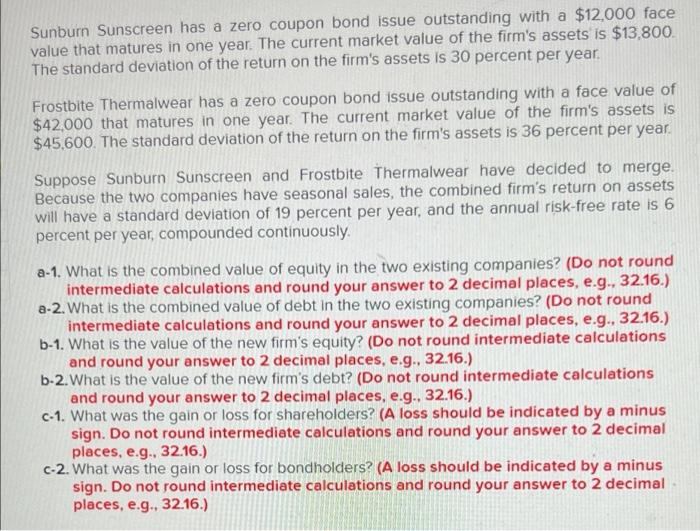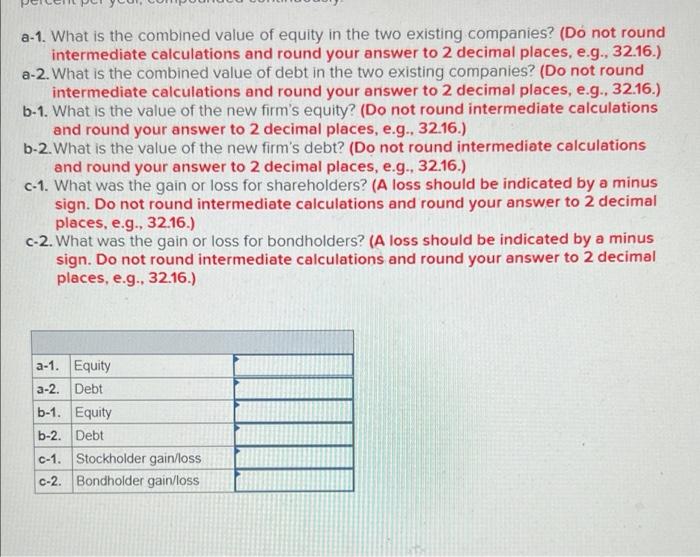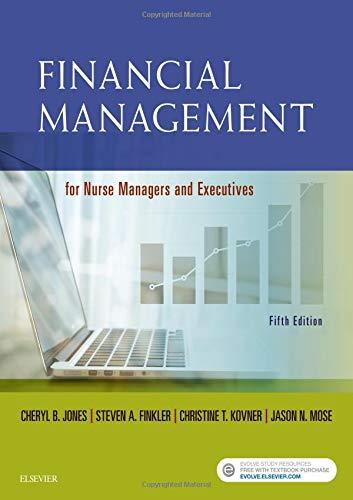Sunburn Sunscreen has a zero coupon bond issue outstanding with a $12,000 face value that matures in one year. The current market value of the firm's assets is $13,800. The standard deviation of the return on the firm's assets is 30 percent per year. Frostbite Thermalwear has a zero coupon bond issue outstanding with a face value of $42,000 that matures in one year. The current market value of the firm's assets is $45,600. The standard deviation of the return on the firm's assets is 36 percent per year. Suppose Sunburn Sunscreen and Frostbite Thermalwear have decided to merge. Because the two companies have seasonal sales, the combined firm's return on assets will have a standard deviation of 19 percent per year, and the annual risk-free rate is 6 percent per year, compounded continuously. a-1. What is the combined value of equity in the two existing companies? (Do not round intermediate calculations and round your answer to 2 decimal places, e.g., 32.16.) a-2. What is the combined value of debt in the two existing companies? (Do not round intermediate calculations and round your answer to 2 decimal places, e.g., 32.16.) b-1. What is the value of the new firm's equity? (Do not round intermediate calculations and round your answer to 2 decimal places, e.g., 32.16.) b-2. What is the value of the new firm's debt? (Do not round intermediate calculations and round your answer to 2 decimal places, e.g., 32.16.) C-1. What was the gain or loss for shareholders? (A loss should be indicated by a minus sign. Do not round intermediate calculations and round your answer to 2 decimal places, e.g., 32.16.) C-2. What was the gain or loss for bondholders? (A loss should be indicated by a minus sign. Do not round intermediate calculations and round your answer to 2 decimal places, e.g., 32.16.) a-1. What is the combined value of equity in the two existing companies? (Do not round intermediate calculations and round your answer to 2 decimal places, e.g., 32.16.) a-2. What is the combined value of debt in the two existing companies? (Do not round intermediate calculations and round your answer to 2 decimal places, e.g., 32.16.) b-1. What is the value of the new firm's equity? (Do not round intermediate calculations and round your answer to 2 decimal places, e.g., 32.16.) b-2. What is the value of the new firm's debt? (Do not round intermediate calculations and round your answer to 2 decimal places, e.g., 32.16.) C-1. What was the gain or loss for shareholders? (A loss should be indicated by a minus sign. Do not round intermediate calculations and round your answer to 2 decimal places, e.g., 32.16.) c-2. What was the gain or loss for bondholders? (A loss should be indicated by a minus sign. Do not round intermediate calculations and round your answer to 2 decimal places, e.g., 32.16.) a-1. Equity a-2. Debt b-1. Equity b-2. Debt c-1. Stockholder gain/loss c-2. Bondholder gain/loss








